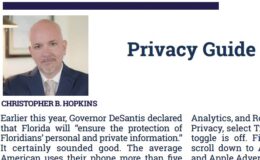Crowe v. Marquette — New Facebook Discovery Case (and possibly lying about it) from Louisiana
- By : Cbh
- Category : E-discovery, Social Media

In a federal case which appears to be about an employee who claims to be injured on the job, the defendant sought the plaintiff’s Facebook content based upon a lead that the plaintiff had posted that he had been injured while fishing before going to work. So the defendant-employer asked for two weeks of the plaintiff’s Facebook content.
The January 20, 2015 Order and Reasons in Brannon Crowe v. Marquette Transportation Company Gulf-Inland, LLC picks up the story from there: after the Plaintiff claimed in his discovery response that he “does not presently have a Facebook account,” the Court did an in camera inspection to reveal “an astonishing 4,000+ pages of of Facebook history… [which the Court] is not about the waste its time reviewing…”
The Court did review enough Facebook content to conclude (a) it should have been produced and (b) at least some of the Plaintiff’s testimony was “inaccurate.” That alone made it discoverable.
Some highlights/comments:
1. Plaintiff was served with the discovery on 10/17 and deactivated his account 4 days later;
2. The IP address which had accessed the account before it was de-activated was the same IP address which re-activated the account (plaintiff had claimed it was hacked…)
3. Plaintiff claimed that he had deleted, and not de-activated, his account but appears to have re-activated around the same day as ordered (which the court took to mean that the plaintiff knew it was just deactivated)
4. Various sanction-type orders were entered but not fees.
Bottom line: it is fairly easy to establish that social media has been manipulated and deleted. Doing so opens it up to discovery by the other side.
Note: this is probably the first social media case where the order cites no authorities at all…?



